Songkran Festival in Thailand is a vibrant celebration of the Thai New Year, marked by water fights, sacred rituals, and joyful gatherings every April and it’s one of the most anticipated holidays in the country. For locals, it’s a time of renewal, reunion, and reflection. For visitors, it’s an unforgettable experience of joy, culture, and pure fun.
A New Year Rooted in Ancient Traditions
Songkran originates from the Sanskrit word “saṅkrānti”, meaning “astrological passage” or change. The festival marks the end of the dry season and the beginning of a new solar year, traditionally celebrated from April 13th to 15th, although festivities often stretch longer in some areas.
During this time, Thai people clean their homes, visit temples, and engage in merit-making rituals. The water, while now part of a massive playful tradition, has deep spiritual significance—symbolizing the washing away of bad luck, misfortune, and sins from the previous year.
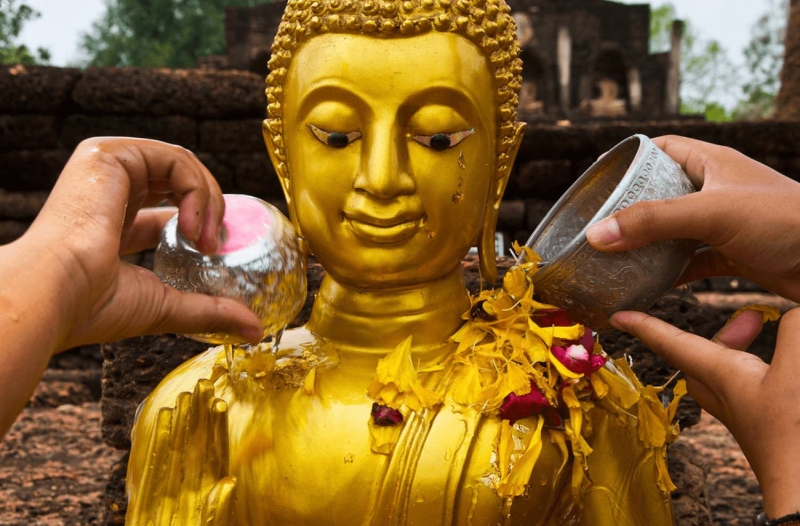
Rituals of Respect and Renewal
Songkran is a time when people pay respect to their elders and honor family bonds. The traditional Rod Nam Dam Hua ceremony involves younger members pouring scented water over the hands of elders, asking for blessings and forgiveness.
Temples hold ceremonies where devotees pour water over sacred Buddha statues and offer alms to monks. These acts are not only spiritual but also reflect the Thai values of gratitude, humility, and mindfulness.
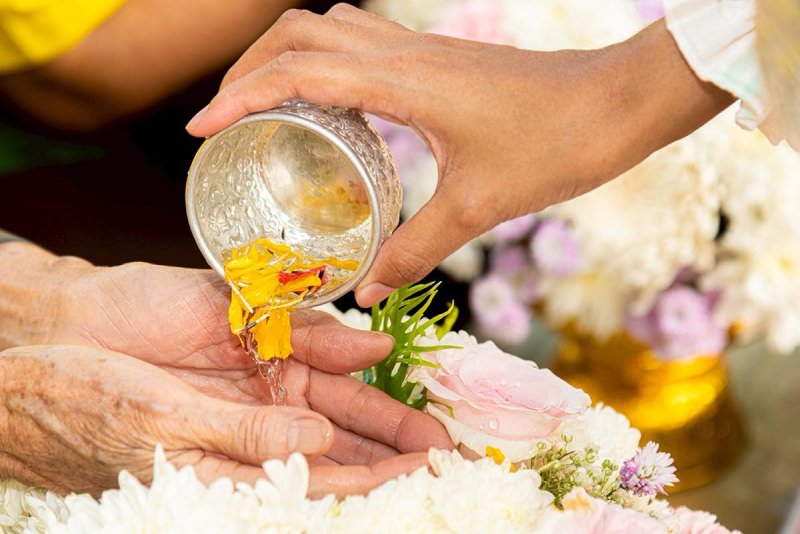
Let the Splashing Begin: The Famous Water Fights
Of course, what Songkran is most famous for around the world is its epic water battles! Streets in major cities like Bangkok, Chiang Mai, and Phuket turn into arenas where locals and tourists alike drench each other in good-natured water wars.
It’s a fun, light-hearted tradition that symbolizes cleansing the old to welcome the new. Water guns, buckets, hoses—everything is fair game! Music blares, people dance, and the entire country feels like one big celebration.
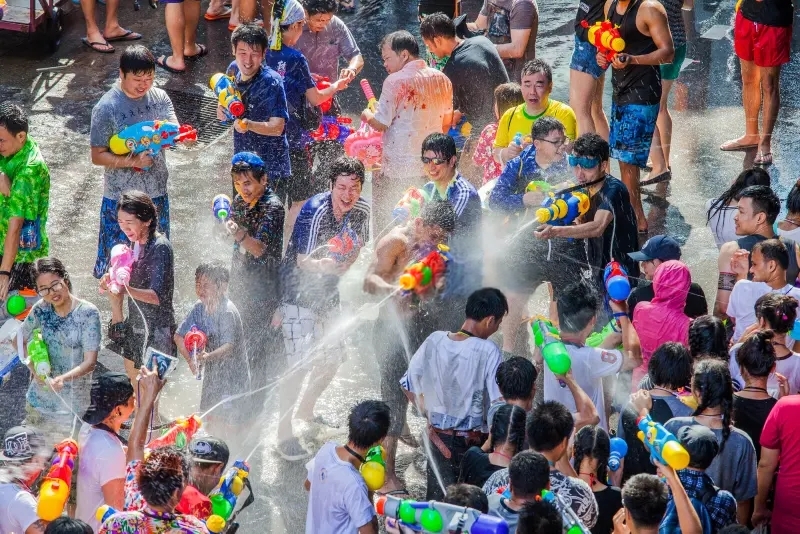
Songkran Across Thailand
Each region in Thailand brings its own flavor to Songkran celebrations:
-
Chiang Mai is home to some of the biggest and longest celebrations. The old city becomes a moat-ringed party zone with days of nonstop fun, parades, and cultural shows.
-
Bangkok’s Silom and Khao San Roads are packed with revelers, DJs, and street vendors.
-
In Isaan (Northeastern Thailand), more traditional customs remain, including local dances and sand pagoda building.
-
Southern provinces often blend religious customs with family-oriented activities, maintaining a more peaceful tone.
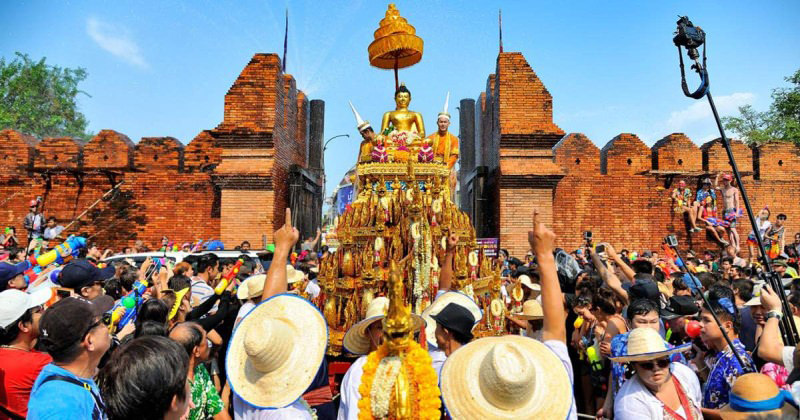
Songkran Beyond Thailand: Celebrations Abroad
Thai communities around the world keep the tradition alive. In places like Los Angeles, London, and Sydney, Songkran is celebrated with temple visits, food festivals, and even mini water festivals.
For example, at Wat Thai of Los Angeles, the Thai community gathers for cultural performances, Thai street food, and traditional ceremonies. It’s a beautiful way for the Thai diaspora to stay connected to their heritage and share it with the world.
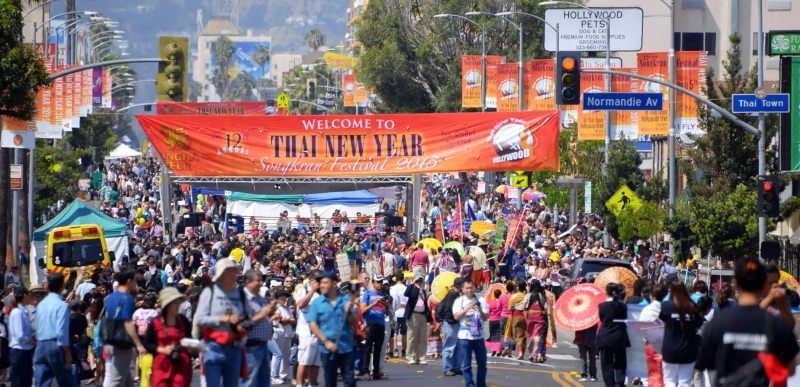
Tips for Enjoying Songkran Like a Local
Planning to visit Thailand during Songkran? Here are a few friendly tips:
-
Dress modestly: Even if you’ll get wet, avoid see-through clothes.
-
Protect your phone and valuables: Waterproof pouches are a must!
-
Respect traditions: Not everyone participates in the wild water fights—temples and elders should always be treated with respect.
-
Bring a smile: It’s the most important thing to wear during Songkran.
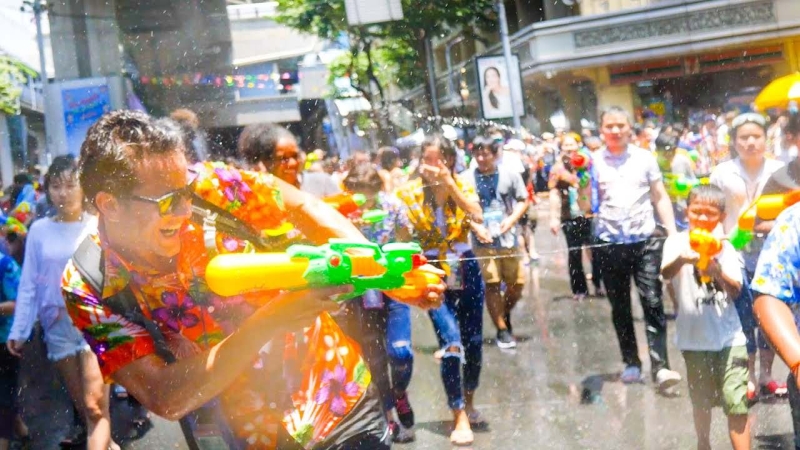
Final Thoughts
Songkran is more than just a water festival—it’s a time of renewal, respect, and reconnection. Whether you’re in the heart of Bangkok or watching from afar, the spirit of Songkran reminds us to let go of the past and welcome the new with joy, kindness, and a splash of fun.
To explore more about Thailand’s rich traditions and travel tips during Songkran, visit the Tourism Authority of Thailand.
At Sabai Home, we honor Thai traditions like Songkran while giving back—10% of our annual income goes to an ethical elephant sanctuary. From our family in Thailand to yours, Happy Songkran!



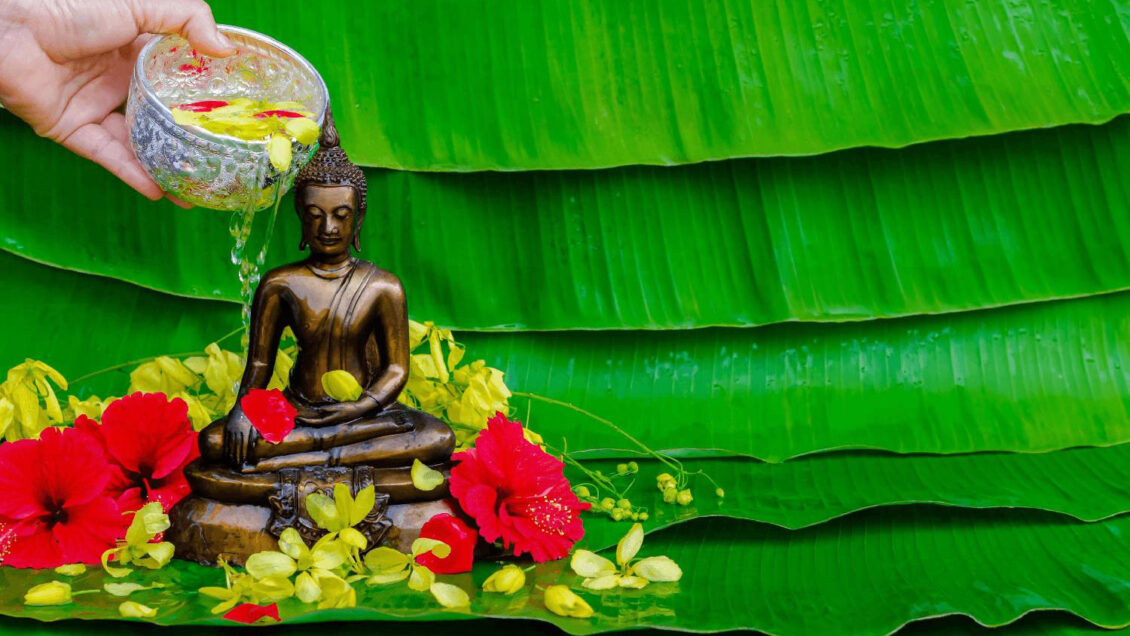
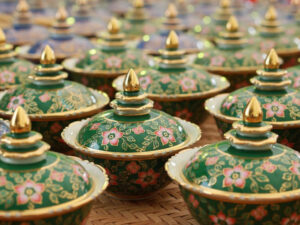
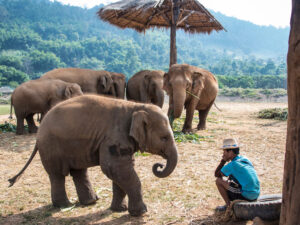
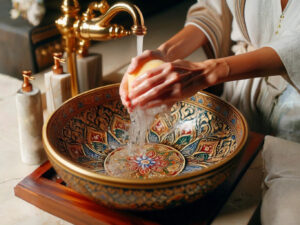

 Caring for your handmade Thai ceramics: Essential tips for longevity
Caring for your handmade Thai ceramics: Essential tips for longevity  5 ways you can help protect Elephants in Thailand
5 ways you can help protect Elephants in Thailand  The Art of Thai ceramics: A tradition of beauty and craftsmanship
The Art of Thai ceramics: A tradition of beauty and craftsmanship  The Story of Benjarong: A Masterpiece of Color and Craft
The Story of Benjarong: A Masterpiece of Color and Craft  Celebrating Songkran: Thailand’s Joyous New Year Festival
Celebrating Songkran: Thailand’s Joyous New Year Festival